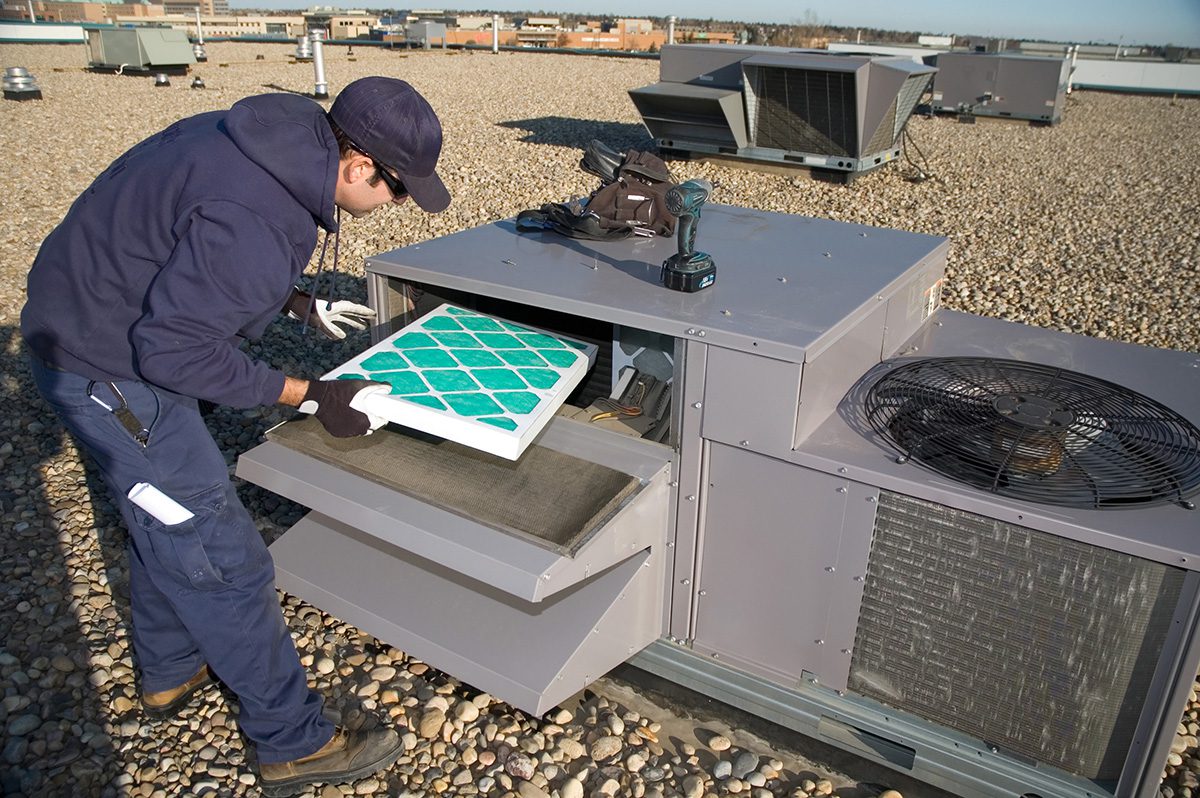Understanding Your Commercial HVAC Filters
Proper commercial HVAC maintenance saves you time and money. Part of this, of course, is making sure your commercial HVAC filters are changed at the right time and replaced with the right type.
When you understand what a commercial HVAC filter is for, you will better understand its importance. That’s why we wrote this post!
What Commercial HVAC Filters Are For
Air can have a lot of different contaminants like dirt, dust, mold spores, pollen, dander, hair, and other particulate matter. Air filters capture them, so they don’t build up in the system and impact its operation. Because of this, they also improve the indoor air quality of your business.
Your HVAC system either warms or cools air after it’s pulled into the system. Filters trap the particulates in that air as it goes through the blower and through the ducts.
Different Types of Commercial HVAC Filters
There are four types of HVAC filters. The filter you should use depends on the type of commercial HVAC system you have.
Flat-Paneled Fiberglass Filters
The flat-paneled fiberglass filter has, you guessed it, fiberglass in layers, and it is reinforced with a metal grate. This is a low-cost air filter, and it has a low MERV (Minimum Efficiency Reporting Value) rating. It’s also good at trapping larger particulates like pet hair.
Pleated Media Filters
These are likely the filters you picture when someone mentions HVAC filters. They have pleated filter material, so they are better at trapping smaller particulates.
They have a higher MERV rating that usually meets the requirements of most HVAC systems. They are not expensive and are usually recommended as an upgrade from the less expensive flat-paneled fiberglass filters.
Reusable Air Filters
Air filters that can be reused are usually more expensive than others. However, they have about the same MERV rating as the simple flat-paneled fiberglass HVAC air filters.
They are fine at stopping carpet fibers and pet hair, but they aren’t as effective at stopping smaller particulates. It’s important to dry reusable air filters completely after washing, or they can grow mold and mildew.
HEPA Air Filters
HEPA stands for high-efficiency particulate air; those filters carry the highest MERV rating. HEPA filters can trap much smaller particulates, including tobacco smoke and small bacteria. These types of filters can restrict airflow and are generally recommended for buildings where air quality is very important, like hospitals.
While these filters can be great, you should only use filters with the equivalent MERV rating as is recommended by the maker of the HVAC unit. The rate of airflow through the unit matters. You don’t want to use a filter that forces your HVAC system to work harder than it should.
How Often Should My HVAC Air Filters Be Changed?
The frequency at which your commercial HVAC filters are changed depends on the type of business that operates in that building. Office buildings and other somewhat clean environments can clean or replace their commercial HVAC filters every quarter, although monthly is ideal.
Places like restaurants, factories, car repair shops, and other businesses that use oils, chemicals, and produce particulates that can clog an HVAC filter faster should be changed whenever they are dirty, so check them often. This could be weekly in some cases.
Similarly, businesses that produce a lot of dust should change filters at least once a month. If filters get full and they aren’t changed often enough, air can stop flowing the way it’s supposed to in the HVAC system, causing internal system problems and failure.
Luckily, filter schedules and inspections are part of routine commercial HVAC maintenance. Contact us today so we can ensure your filters are the right ones for your system and in the right condition to ensure your commercial HVAC is operating at peak efficiency.


